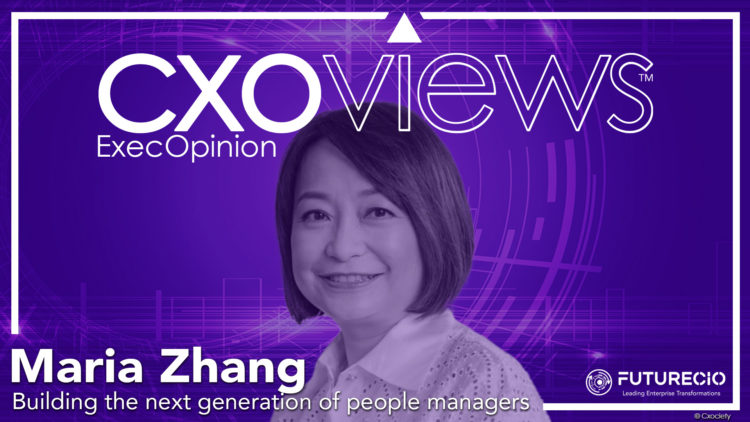“Rewarding and challenging” is how the Society for Human Resources Management (SHRM) describes a career in human resources. According to SHRM, HR is “consistently ranked in numerous "best jobs" reports and currently (back in 2019) expected to have higher-than-average job growth, positions in the field of human resources allow individuals to achieve continuous career advancement and perform meaningful work.
Regardless of its reputation, one thing is certain, the issue of people or talent has grown in significance so much so that Gartner predicts that in 2023, organisations face historic challenges: a competitive talent landscape, an exhausted workforce, and pressure to control costs. In this environment, it’s imperative to tackle the following nine trends as your organisation sets strategic workforce and talent goals.
Perhaps even more critical is the citing of “leader and manager effectiveness” as a top priority among 60% of HR leaders participating in a Gartner survey.
In this second* in a series on people managers, Maria Zhang, senior director of HR for APAC & India at Juniper Networks, shares her perspective on building the next generation of people managers.
What makes for a great people manager?
Maria Zhang: 2023 will continue to be a year of attracting and retaining talent while people get fully integrated into hybrid styles of working. Being always ready for the future of work in 2023 and beyond, a great people manager will prioritise three things: inspiring their teams, helping people grow their careers, and building an inclusive company culture which has safety and well-being at its heart.
First, inspire your team – set clear goals with the team and agree on a meaningful purpose. A people manager must articulate and communicate their convictions clearly with the team while providing the right balance of guidance and autonomy to fulfil those goals. This is something that goes beyond profit – it is cultivating an environment focused on collaboration and putting people first.
Second, help your people grow their careers. One of the key factors that attract and retain talent today is the ability to continuously invest in people and provide them with opportunities to grow in their careers across the organisation while setting out a framework to map out the next steps in their career trajectory and coaching them to success.
Third, build an inclusive culture and integrate it into overall business operations and processes. With hybrid work schedules now in the picture, people managers must engage employees by smoothing transition processes and keeping a close ear to on-the-ground sentiments – establishing a culture built around strong connections and resiliency.
It’s also about anticipating human behaviour in a rapidly evolving environment – in a diverse workforce, people managers need to leverage the strengths of each employee, cultivating these strengths to optimise team performance. Finally, a great people manager should always place employees’ safety and well-being as their top priority.
Describe the role of the people manager in Asia Pacific in 2023. What is the most significant change in the role since the pandemic?
Maria Zhang: In Asia Pacific, employees are encouraged to spend some time in the office as part of the hybrid work model. People managers are tasked to drive this transition and work with their teams to return to the office. By utilising the office space and meeting in person, we are setting the ground for stronger teamwork and the exchange of ideas.
At Juniper Networks, we have created the “Way We Work” framework – a workplace transformation initiative focused on the way our employees work together and how we collectively shape our company culture.
It’s about appreciating our in-office experience where we can improve our sense of belonging and find innovative ways to address challenges together while valuing the flexibility of hybrid work.
Managers at Juniper leverage this framework to encourage collaboration such as scheduling in-person meetings for high-impact discussions, coordinating 2 to 3 in-office days with cross-functional teams to promote cohesion, and socialising over planned office events.
Given the recurring issue of talent shortage/skills gap/retention challenge, how does the Chief Human Resources Officer (CHRO) juggle between wish lists, priorities and the reality of people management?
Maria Zhang: Budgets are never enough, but staying focused will help. Meeting business objectives would be much more straightforward once clear solutions have been made on how to address the fundamentals of talent attraction and retention.
Understanding which aspect of the career experience to prioritise is difficult until you ask the people for whom HR initiatives are rolled out.
To be effective in his/her role, how should the CHRO work alongside other members of the C-suite? Alongside his/her team in the department? Across the organisation?
Maria Zhang: An effective CHRO understands that the HR function does not have a supporting role in the business and instead plays quite a crucial role. By listening to both top-level business directives and the needs of the people, CHROs are in a prime position to drive impactful change backed by a deep understanding of the full picture. CHROs are integral to assessing what the talent needs are in the company, what training to launch, and what type of culture to build.
They also play a true advisor role to the rest of the C-suites, challenging the executability of initiatives with their teams, while always keeping the employee experience in mind. Additionally, CHROs should represent a safe space that always welcomes feedback across the organisation.

"Ultimately, an effective CHRO needs to be people-centric and can anticipate the future of the workplace. They need to ensure they can communicate their vision effectively both inside and outside the organisation while encouraging innovation to drive meaningful change."
Maria Zhang
It is also crucial for today’s CHRO to influence other members of the C-suite with a deep understanding of the financial aspects of the business, thus enabling effective strategy planning. CHROs should understand themselves as true business partners with the ability to make positive impacts on the organisation’s bottom line.
What remains the top challenge of the CHRO in 2023?
Maria Zhang: The evergreen challenge of attracting and retaining talent remains a top one for the CHRO in 2023 – but now it is even more nuanced than before. As the business continues to evolve, so too will targets and talent needs. HR teams need to be diligent and smart in hunting for talent and developing people wherever possible.
Can a company outsource HRM and still be effective?
Maria Zhang: The HR function has evolved significantly over the past decades, and over this time the HRM role has now arguably become even more critical for organisations. Some specific tasks (such as functions in sales and finance) may be outsourced, and the introduction of HR technologies further frees up internal HR personnel to focus on employee experience, leadership effectiveness and building strong cultures.
However, HRM should not operate in complete isolation from the wider company. It is fundamental to every organisation as it addresses one of the core aspects of any business – people.
What is your advice for those wishing to pursue a people manager career?
Maria Zhang: Know yourself well. An effective people manager must be able to first lead themselves before they can successfully lead a team and a business.
A people manager must also have a genuine interest in supporting the team to succeed. For those wishing to pursue a career in this, building your managerial skills is only the first part of the equation.
That mindset of devoting yourself to the communal success of the team is essential – which includes keeping people motivated, encouraging them to pursue what they are passionate about, and coaching them to succeed.
* Editor's note: Click here to read the first in this series.




